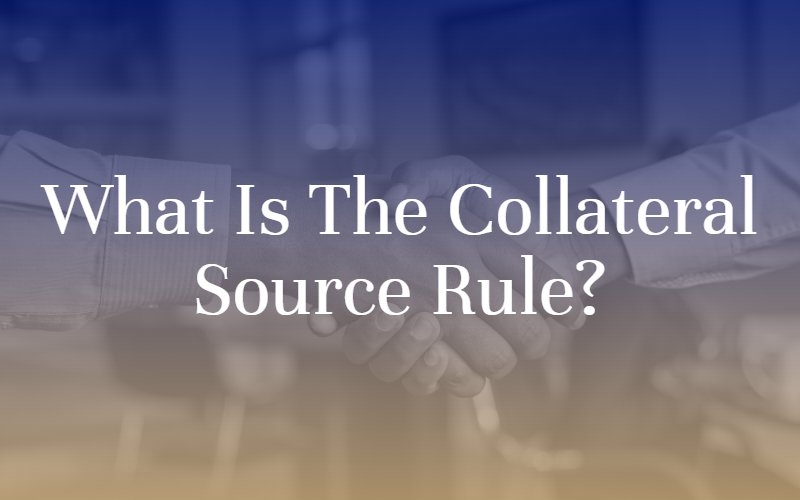
Collateral Source Rule
The collateral source rule is a legal doctrine that prevents the defendant in a personal injury case from reducing their liability by introducing evidence of compensation the plaintiff received from other sources, such as insurance payouts, workers’ compensation, or other benefits. This rule ensures that plaintiffs are not penalized for having insurance or other support and that defendants are held fully accountable for the damages they caused. At 770GoodLaw, we help clients understand and leverage the collateral source rule, ensuring they receive fair compensation without deductions based on external benefits.
Purpose of the Collateral Source Rule
The collateral source rule aims to protect plaintiffs from having their compensation unfairly reduced due to benefits they receive from unrelated sources. This doctrine reinforces the principle that defendants should be responsible for the full extent of the damages they cause, regardless of other financial resources available to the plaintiff. Key purposes of the collateral source rule include:
- Ensuring Full Compensation: The rule allows plaintiffs to recover the total amount of damages without deductions, promoting fairness in personal injury awards.
- Encouraging Accountability: By holding defendants fully liable, the rule emphasizes their responsibility for the harm they caused, regardless of the plaintiff’s independent resources.
- Discouraging Unjust Windfalls for Defendants: The rule prevents defendants from benefiting from insurance or other payments made to the plaintiff, which the defendant did not contribute to.
Common Sources of Collateral Benefits
Collateral sources are independent financial resources or benefits the plaintiff may receive outside of the court’s judgment. Common examples of collateral sources in personal injury cases include:
- Health Insurance: Payments for medical bills covered by health insurance are considered a collateral source and typically cannot reduce the defendant’s liability.
- Workers’ Compensation: Benefits received through workers’ compensation do not reduce a defendant’s obligation to compensate the plaintiff.
- Disability Benefits: Social Security Disability Insurance (SSDI) or private disability insurance payments are excluded from consideration in calculating the defendant’s liability.
- Charitable Assistance: Any donations or aid received by the plaintiff from charities or non-profits are also considered collateral sources.
Application of the Collateral Source Rule
While the collateral source rule applies in many personal injury cases, its application can vary based on state laws and the specifics of the case. In some jurisdictions, the rule is strictly enforced, while others may allow limited exceptions. Important aspects of its application include:
- Exclusion of Evidence: The defendant cannot introduce evidence of the plaintiff’s collateral benefits to argue for a reduction in compensation.
- Jurisdictional Differences: Some states have modified the rule, allowing certain deductions or evidence in specific situations, so understanding local laws is essential.
- Impact on Settlement Negotiations: The rule can affect settlement discussions, as defendants cannot rely on collateral benefits to lower their payout.
How the Collateral Source Rule Affects Personal Injury Compensation
The collateral source rule can significantly impact the amount a plaintiff receives in a personal injury case by preventing deductions based on external benefits. Examples of how the rule affects compensation include:
- Full Medical Cost Recovery: Plaintiffs can claim the total amount of their medical expenses, even if part of it was covered by health insurance.
- Protection from Benefit Deductions: Disability or workers’ compensation benefits do not reduce the defendant’s liability, ensuring the plaintiff receives the full compensation for lost wages and other damages.
- Increased Settlement Value: Knowing that collateral sources are excluded from consideration may incentivize defendants to settle for fair amounts, avoiding lengthy litigation.
How 770GoodLaw Assists Clients with the Collateral Source Rule
At 770GoodLaw, we understand the importance of maximizing compensation for our clients and ensure that the collateral source rule is applied to protect their rights. Our attorneys work diligently to prevent unfair deductions and pursue the full compensation clients deserve. Our support includes:
- Excluding Collateral Benefits from Evidence: We ensure that defendants cannot introduce collateral benefits in court, helping clients retain their full compensation.
- Calculating Comprehensive Damages: Our team evaluates all damages, including medical expenses, lost wages, and pain and suffering, to build a complete compensation claim.
- Guiding Clients on State-Specific Rules: We provide clients with clear explanations of how the collateral source rule applies in their jurisdiction, empowering them with knowledge about their rights.
- Advocating for Fair Settlements: Knowing that collateral benefits cannot reduce liability strengthens our position in settlement negotiations, allowing us to advocate effectively for fair compensation.
Importance of Legal Representation with the Collateral Source Rule
Experienced legal representation is essential for clients to understand and leverage the collateral source rule in personal injury cases. Skilled attorneys ensure that collateral benefits are excluded, allowing plaintiffs to pursue the full extent of their damages. At 770GoodLaw, we provide the guidance and support clients need to maximize their compensation, helping them navigate the complexities of the collateral source rule and personal injury claims.
Why Choose 770GoodLaw for Personal Injury Claims Involving the Collateral Source Rule
Our commitment to Relentless Reliability and Sincetegrity means that we approach every personal injury case with integrity and dedication. At 770GoodLaw, we ensure that our clients receive the full compensation they deserve, without unjust deductions from external benefits.






